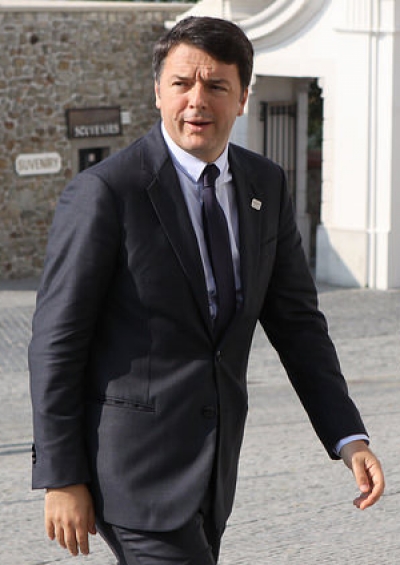Italy: Snap Elections in Late September?
Is Renzi putting his personal electoral interests over those of his country? And will his gamble pay off?
June 1, 2017

The Italian political risk is back. Ex-prime minister Matteo Renzi told Il Messagero newspaper on Sunday that it “would make sense… from a European perspective” to hold snap elections at the time of the German vote on September 24th.
The risk-taker is back at work
That would not only be some six months ahead of the regular date for new Italian elections (to be held between March and early May 2018). It would also prematurely bring to an end a government, led by Paolo Gentiloni, that – not unlike the earlier government led by Enrico Letta – is actually working remarkably well.
A critical item on the legislative agenda, the 2018 budget, would be left on the legislative calendar. This is a political gamble for Italy (and the EU) that may come to haunt Renzi if he fails to form a stable government after the early elections that he is now aiming for.
Copying the German system
Still, Italy’s major parties including Renzi’s center-left Democrats are willing to agree on a new election law. It is based on the German version of full proportional representation, with crossing a 5% vote threshold for any party to enter parliament.
By keeping splinter parties out of parliament, this measure is aimed at facilitating the forming of a governing majority.
A better approach than in the past
Italy’s current election system, as modified by the Constitutional Court only in January 2017, is also largely based on proportional representation.
However, to gain seats in the lower house, the Chamber of Deputies, parties need to win just 3% of the votes. The strongest party gets a majority premium — if it exceeds 40% of the popular vote.
With both leading parties scoring around 30% in opinion polls, neither party would be likely to achieve such a majority under the current law.
That makes the formation of a majority government difficult. To reduce the influence of small parties, the major parties now apparently agree on moving the threshold from 3% of the national vote to 5%.
(The election system for the upper house, the Senate, sets a 3% threshold for parties running as part of a pre-arranged coalition and an 8% threshold for parties running on their own. The election rules for the two houses of parliament, which both need to pass laws, also differ in some other details).
Go ahead – or not?
Italy’s president Sergio Mattarella remains reluctant to call snap elections. He has made a new election law a precondition for an early vote. That precondition will very likely be met soon.
Of course, it remains an open question whether or not the current government led by the center-left will indeed step down or disintegrate to trigger early elections. President Mattarella may still try to prevent that. But chances are that Italy will go for early elections this autumn.
Opinion polls project that no single party would come close to a majority in parliament, with a neck-and-neck race for the pole position between the pro-European center-left Democrats and the radical Five Stars.
Election scenarios
Support for both parties stands close to 30%. Of the last seven polls, three give the lead to the Five Stars and four to the Democrats who have bounced back by around 4 percentage points since Renzi returned to the helm of his party after winning a primary vote on April 30.
Berlusconi’s center-right Forza Italia and the right-wing Lega Nord would also clear a hypothetical 5% threshold, each with roughly 13% of the popular vote.
Among the four major parties, the Democrats are staunchly pro-European, the Five Stars demand a referendum on euro membership, Forza Italia with a somewhat unclear position seems to argue for reforms in Europe. In contrast, the Lega Nord wants to leave the euro.
Likely: The return of Renzi
In case of early elections under German-style proportional representation, the most likely outcome would be a government led by Renzi, either in a formal coalition or an informal alliance with the center-right Forza Italia.
Such a government would likely contribute to a reform debate in the EU and the Eurozone without rocking the boat. It may not be stable for a full term, though.
For three reasons, the opposite scenario — that the Five Stars could team up with the Lega Nord and take Italy out of the euro — remains very unlikely:
1. Many left-wingers among the Five Stars would likely object to any alliance with the radical right.
2. Whereas the Five Stars argue for a referendum on the euro, quite a few of them would probably not choose to leave the euro in such a vote.
3. Preparing a referendum on leaving the euro would take many months. To allow such a referendum, the Italian constitution would have to be changed, which most likely would have to be approved by a referendum first.
The inevitable period of market uncertainty and economic anxiety would probably force any Italian government to abandon such plans fast.
Takeaways
Matteo Renzi saying it would make sense to hold snap elections means the Italian political risk is back.
Opinion polls project that no single party would come close to a majority in Italy’s parliament.
In case of early elections under proportional representation, the likely outcome would be a Renzi-led government.
Many left-wingers among the Five Stars would likely object to any alliance with the radical right.
Preparing a referendum on leaving the euro would take many months.
Read previous
Global Diplomacy
Trump’s New World Order
May 31, 2017
